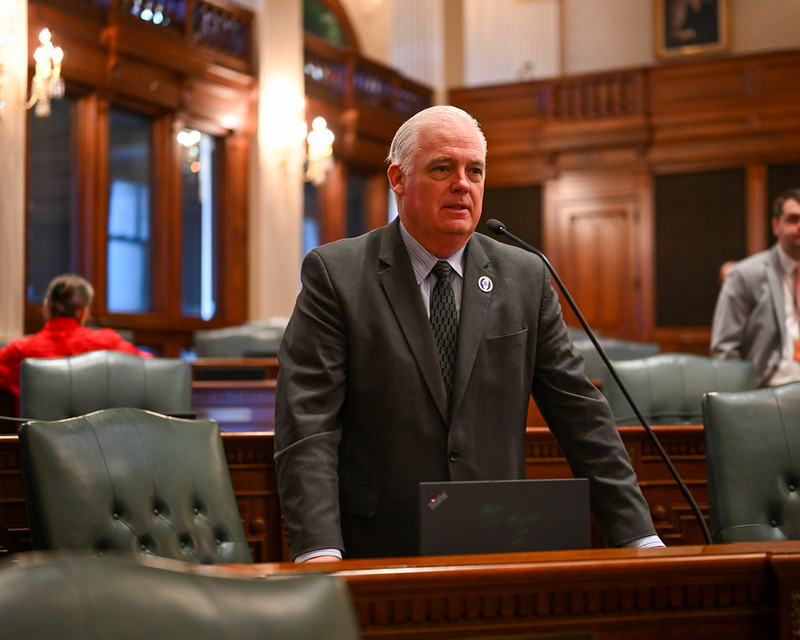BARRINGTON HILLS… State Representative Martin McLaughlin released the following statement after reading the new University of Illinois System’s Institute of Government and Public Affairs study released to the public last week.
“We can do two things at once just like walking and chewing gum or in this case eliminating the grocery tax and restoring the full 10% allocation to our Local Government Distributive Fund.
“A new report outlines exactly how the Governor’s proposed Grocery Tax elimination would hurt local municipalities. The University of Illinois System’s Institute of Government and Public Affairs released a study providing us with important context over the debate on eliminating the one percent tax on grocery sales.
“When Governor Pritzker proposed this idea in his budget address, he touted this as a great win to eliminate a regressive tax that would put money back in the pockets of struggling Illinois families. The report, titled “Should Illinois Eliminate the State Grocery Tax?” highlights the actual reality of how this will affect families. Groceries purchased with the Supplemental Nutrition Assistance Program (SNAP) are not subject to the Grocery Tax, and low-income households will see a modest benefit if the Grocery Tax is eliminated.
“Those families within the first quintile of income ($0 – $25,806) would on average see an annual savings of $1.64. Households in the second quintile ($25,807 – $50,091), which are more likely to fall above SNAP income thresholds, would on average, maintain less than $30 in annual savings.
“These modest benefits summarized above come at a significant cost to our local municipalities. The state estimates eliminating the Grocery Tax would cost local governments roughly $350 million. Multiple communities within the Northwest Municipal Conference (NWMC) estimate losses at over $1 million annually.
“There is an additional concern over the timing involved with scrapping the Grocery Tax at the start of the upcoming state Fiscal Year (FY25). Our local governments will be facing significant budgetary upheaval without time to find replacement revenue.
“The press release accompanying the report states, “Other policy proposals should be considered to benefit low- and middle-income households, and should the grocery tax be eliminated, alternatives for municipalities should be examined and implemented to make up for lost revenue.
“Our state already has some of the highest property taxes in the nation and this proposal will increase these taxes locally. It is time for the Governor to fulfill the 10% Local Government Distributive Fund (LGDF) agreement and provide our education system with the majority funding to bring real relief to Illinoisans and permanently lower our egregious property tax burden.
“We can eliminate this grocery tax and fully fund our LGDF which will bring money back to our communities. This is both straightforward and simple to do in our new budget. I am calling on the Governor and my colleagues on the other side of the aisle to join me in making this our top FY25 budget priority,” concluded Rep. McLaughlin.
